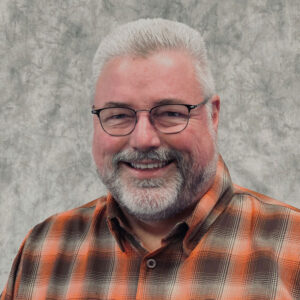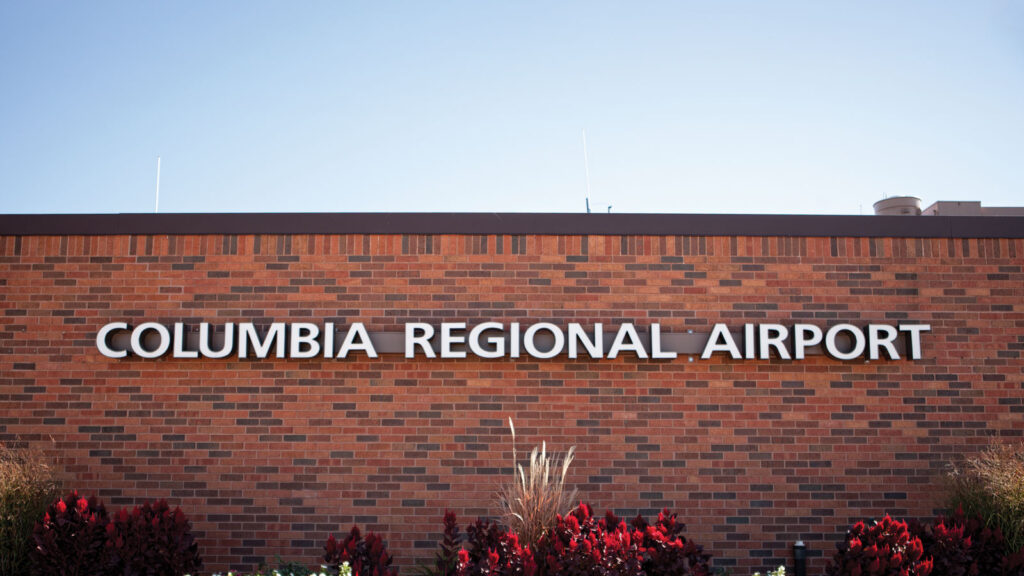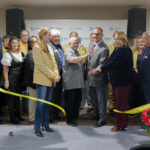MACC brings aviation flight technology program to Columbia.
As a slew of airline pilots decided to retire coming out of the COVID pandemic, there’s no question that pilots are in demand. A new program at Moberly Area Community College is aimed at providing a solution.
In January 2025, MACC plans to enroll the first cohort of about twenty-five students in its aviation flight technology program leading to an associate of applied science degree in aviation flight technology, better known as a commercial pilot’s license, says Dr. Todd Martin, MACC’s current vice president for innovation and MACC’s next president.
Identifying a Need
Once Columbia Regional Airport (COU) completed its new terminal last fall, conversations began about how to best use the old terminal in a way that would benefit the community, the region, and the airport itself, Martin says. With only a couple of other flight training programs around the state, it became clear that there was interest in developing a program with MACC.
“There are a lot of benefits,” Martin says. “It increases the number of actions that happen at the airport which can boost it with the Federal Aviation Administration to get funding for things, and it uses a resource that is largely sitting empty.”
After research indicated that there was both a need and a demand for such a program, MACC negotiated with the city of Columbia for a lease at COU. In December, the Columbia City Council approved the lease.
“When it was approved in December by the city council, we started working on getting our i’s dotted and our t’s crossed to make this happen,” Martin says.
Moving Ahead
One of the first tasks is renovating the existing terminal space for use by MACC.
“MACC has leased the main lobby of the old terminal facility,” says Michael Parks, manager of COU. “They will be using this area for the classroom along with any offices that they determine are needed for staff.”
The generous timeline for the renovation allows for possible delays.
“We have to do some significant renovations in the space to turn it into a classroom; common areas for students and meeting areas for students and faculty,” Martin says. “We all know how supply chains have been over the last few years from COVID and global economic situations, so we are trying to give ourselves a big enough time before students show up for classes.”
The program’s official curriculum will be approved through internal processes by spring, and following approval by the national accrediting body, the program will hire a program director.
“We will hire a full-time director for the program, and that person will, in the fall, start stepping up the recruiting and public relations pieces of the program so we are ready to go in January,” Martin says.
The Admissions Process
While the admissions process hasn’t been finalized, Martin says the process will be selective for a variety of reasons.
“It will be a selective admission process to get into the program,” he adds. “We haven’t finalized the details of what that will look like, but part of it will be a lot of counseling with the program director to make sure the student is committed to the intense program they are going to enter. There will be significant costs associated with the program and we want students to be making the right decision for themselves and to understand the commitment they are making going in.”
Because of the program’s intensity and cost, which Martin estimates will be between $75,000 to $80,000 for two years, helping potential students understand the responsibilities up front will be a key part of the director’s recruitment and admissions strategy.
“We feel like that is part of the obligation to help students realize what it takes to get to where they want to be and make sure that’s where they want to go,” Martin says.
While the director will be charged with exploring scholarship opportunities for future students, Martin says that the investment of both time and money will pay off once students complete the program.
“The reality is that these students can finish their degree and pretty quickly move into a six-figure job,” Martin says. “If they have to take out loans to support education costs, they will be able to pay those back pretty readily and realistically. These are very well-paying jobs that require pretty specific training, and we are focused on providing that training to get into those jobs. The jobs start around $100,000 a year for a regional airline.”
A Network of Partners
MACC will also establish an advisory committee for the program consisting of a variety of experts from the industry.

“We are going to be pulling in experts from the industry so we can ensure that the curriculum we are providing and development of the students will meet the needs of the employers,” Martin says. “We are confident that students are going to get hired out of the program as quickly as they can finish, as we see with a lot of our workforce development programs.”
The list of partners on board to make the new program a success is long, and Martin says the positive benefits will extend throughout the region.
“We are providing additional opportunity for people who live in this region to access a career route that is challenging, rewarding, and in demand right now,” he explains. “It promotes Columbia Regional Airport and the Columbia region. It’s a win-win — a win for the college, for Columbia Regional Airport, for the city of Columbia, and for the Columbia Jet Center, which is our contracted flight school provider.”
Martin notes that those connections are an example of how such a partnership “can be beneficial for a lot of different people.”
In fact, Martin says MACC would not have the ability to offer the program if it weren’t for the partners who have stepped up to help make it happen.
“We couldn’t do this ourselves without the Columbia Regional Airport to have the space with planes to hold the program,” Martin says. “The startup costs would be prohibitive if we tried to buy the airplanes, buy the simulators, hire the certified flight instructors ourselves. Their support is just critical.”
While the program will provide a clear career path to its students and make use of space at COU, it is the hope that ultimately, the people of Columbia will also enjoy the benefits of additional pilots entering the workforce.
“One of the reasons that Columbia Regional Airport has struggled to add additional flights from the regional airlines that service the airport is because those airlines don’t have pilots to put in planes to fly in and out of Columbia,” Martin says. “This program hopefully makes a dent in that.”
Moberly Area Community College
macc.edu
info@macc.edu
660-263-4100










